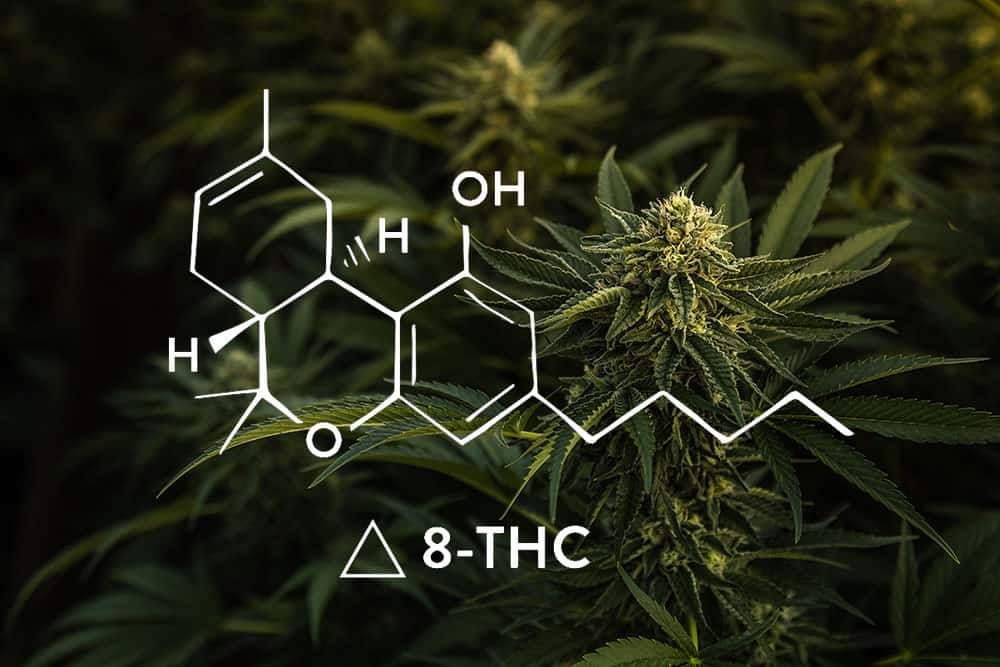Understanding Delta-8 THC: A Comprehensive Guide for Hemp Enthusiasts

As the hemp industry evolves, new cannabinoids are coming into the spotlight, offering unique benefits and experiences. One such cannabinoid gaining popularity is Delta-8 THC. While it shares similarities with the more well-known Delta-9 THC, Delta-8 THC has distinct properties that make it an intriguing option for many users. In this article, we’ll delve into what Delta-8 THC is, how it differs from Delta-9 THC, and the benefits it offers.
What is Delta-8 THC?
Delta-8 THC, or Delta-8-tetrahydrocannabinol, is a naturally occurring cannabinoid found in small amounts in the hemp and cannabis plants. It is chemically similar to Delta-9 THC, the primary psychoactive compound in cannabis, but with a few key differences in its molecular structure.
Key Characteristics of Delta-8 THC:
- Mildly Psychoactive: Delta-8 THC does produce psychoactive effects, but they are generally milder and less intense compared to Delta-9 THC. Users often describe the high as more clear-headed and less likely to induce anxiety or paranoia.
- Chemical Structure: The difference lies in the position of a double bond in the molecular chain. For Delta-8 THC, the double bond is on the eighth carbon atom, while for Delta-9 THC, it’s on the ninth carbon atom. This small difference significantly alters the compound’s effects on the body.
The Benefits of Delta-8 THC
Delta-8 THC offers several benefits, appealing to those who seek the therapeutic effects of THC with a gentler experience.
Key Benefits:
- Anxiety Relief: Many users find Delta-8 THC to be effective in reducing anxiety without the intense psychoactive effects that can sometimes accompany Delta-9 THC.
- Pain and Inflammation: Delta-8 THC has been reported to help alleviate pain and reduce inflammation, making it useful for individuals with chronic pain conditions.
- Appetite Stimulation: Similar to Delta-9 THC, Delta-8 can stimulate appetite, which can be beneficial for those dealing with appetite loss due to medical conditions or treatments.
- Nausea Reduction: Delta-8 THC has antiemetic properties, which means it can help reduce nausea and vomiting. This makes it a potential option for individuals undergoing chemotherapy or experiencing other conditions that cause severe nausea.
How Delta-8 THC Differs from Delta-9 THC
While Delta-8 and Delta-9 THC are similar, their differences create distinct experiences and applications.
Key Differences:
- Psychoactive Effects: Delta-8 THC is less potent than Delta-9 THC, offering a milder high that is less likely to cause anxiety or paranoia. This makes it a more approachable option for those who are sensitive to the effects of Delta-9 THC.
- Legality: Delta-8 THC exists in a legal gray area. The 2018 Farm Bill legalized hemp-derived cannabinoids, but some states have specifically banned Delta-8 THC. It’s important to check local regulations before purchasing or using Delta-8 products.
- Availability: Delta-8 THC is found in much smaller quantities in hemp and cannabis plants compared to Delta-9 THC. As a result, it often requires additional processing to convert CBD into Delta-8 THC, which can affect its availability and cost.
Consumption Methods
Delta-8 THC can be consumed in various forms, similar to other cannabinoids, offering flexibility based on individual preferences and needs.
Popular Methods:
- Vaping and Smoking: Provides quick onset of effects, making it ideal for those seeking immediate relief from symptoms like anxiety or pain.
- Edibles: Offer a longer-lasting and more gradual onset of effects, suitable for sustained symptom relief.
- Tinctures and Oils: Allow for precise dosing and can be used sublingually (under the tongue) for faster absorption or added to foods and beverages.
- Topicals: Can be applied directly to the skin for localized relief of pain and inflammation without psychoactive effects.
Legal Considerations
The legality of Delta-8 THC is complex and varies by region. Under the 2018 Farm Bill, hemp-derived cannabinoids are federally legal in the United States, provided they contain less than 0.3% Delta-9 THC. However, several states have enacted their own laws banning or restricting Delta-8 THC. Always check your local regulations to ensure compliance.
Conclusion
Delta-8 THC offers a unique blend of therapeutic benefits and mild psychoactive effects, making it an attractive option for many hemp enthusiasts. Whether you’re seeking anxiety relief, pain management, or a gentler psychoactive experience, Delta-8 THC provides a versatile and promising alternative to Delta-9 THC. As with any cannabinoid, it’s important to start with a low dose and consult with a healthcare professional, especially if you have underlying health conditions or are taking other medications. Explore the potential of Delta-8 THC and discover how it can enhance your wellness journey.
